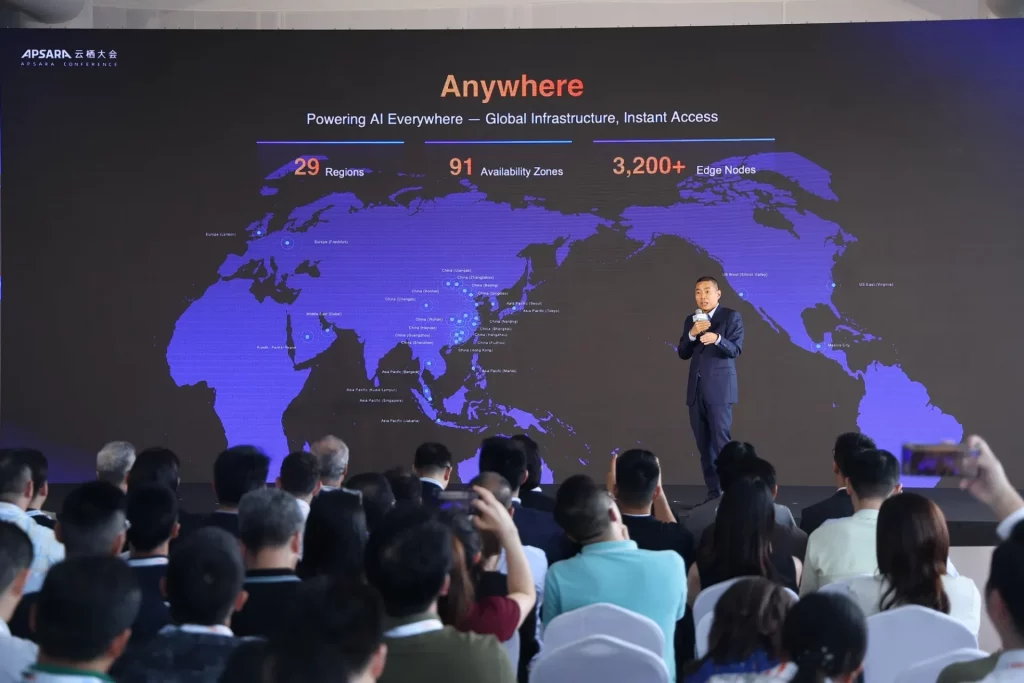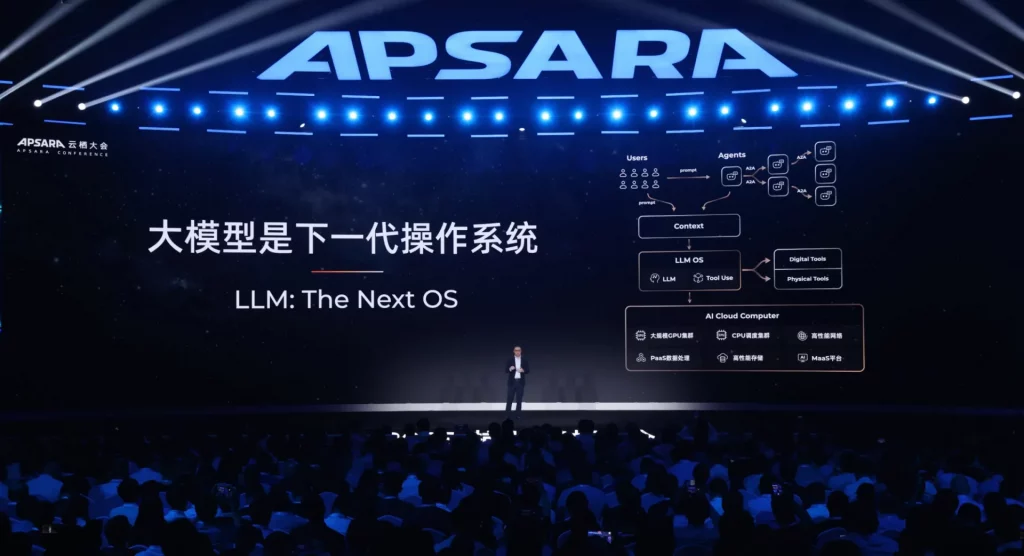Alibaba Cloud is making a bold global push, unveiling plans at its Apsara Conference 2025 to open its first data centers in Brazil, France, and the Netherlands, with more locations like Mexico, Japan, South Korea, Malaysia, and Dubai on the way. The company is also adding regional service centers in Indonesia and Germany to provide around-the-clock, multi-language customer support. For context, Alibaba Cloud already runs 91 availability zones across 29 regions worldwide.
 Fueling AI innovation with programs and partnerships
Fueling AI innovation with programs and partnerships
To nurture the global AI ecosystem, Alibaba Cloud introduced the AI Catalyst Program, offering startups and developers industry guidance, access to AI tools, go-to-market resources, and up to 2 billion free tokens on Model Studio, its generative AI development platform, along with $120,000 in cloud credits.
On the innovation side, its Platform for AI (PAI) now integrates NVIDIA’s Physical AI software stack, giving developers a comprehensive, cloud-native environment for advancing humanoid robotics and Physical AI solutions. At the same time, Alibaba Cloud is running the Sports Data Hack Challenge with the International Skating Union (ISU) and Thinksport, engaging Europe’s sports innovation ecosystem through an AI hackathon that will turn winning concepts into real-world projects.
 Industry use cases showcase AI’s potential
Industry use cases showcase AI’s potential
The announcements weren’t just theoretical—Alibaba Cloud showcased real-world collaborations across multiple industries. In healthcare, AstraZeneca China leveraged Alibaba’s Qwen LLM and Model Studio to build an adverse event reporting tool that boosts efficiency by 300% compared to human analysts. Shiseido, meanwhile, is tapping into Alibaba Cloud’s Cloud Threat Detection and Response (CTDR) platform to strengthen cybersecurity in China, enabling real-time detection of complex attack chains while lowering operational costs.
In Japan, GladCube is co-developing AI-powered marketing solutions using Alibaba’s visual generation model Wan, including “Dra Vis” for fast vertical video production and “AvaTwin” AI avatars for corporate communications. Another Japanese partner, FLUX, created the “FLUX-Japanese-Qwen,” a 32-billion-parameter open-source language model, using Alibaba Tongyi Lab’s pinpoint-tuning technique to advance comprehension and reasoning in Japanese—particularly for the financial sector.
Turbocharging AI infrastructure at scale
Beyond industry-specific collaborations, Turbo AI is tapping Alibaba Cloud’s infrastructure for everything from lightweight model operations to large-scale deployment. According to Yuan Lu, Big Data Head at Turbo AI, the partnership helps dynamically scale computing resources while improving efficiency and cost performance of AI workloads.
The bigger picture
From healthcare and beauty to sports and digital marketing, Alibaba Cloud’s latest moves show it’s not just building data centers—it’s creating a global backbone for AI-driven innovation. With new programs, expanded infrastructure, and strategic industry partnerships, the company is positioning itself at the heart of how AI transforms industries worldwide.



 Fueling AI innovation with programs and partnerships
Fueling AI innovation with programs and partnerships Industry use cases showcase AI’s potential
Industry use cases showcase AI’s potential

